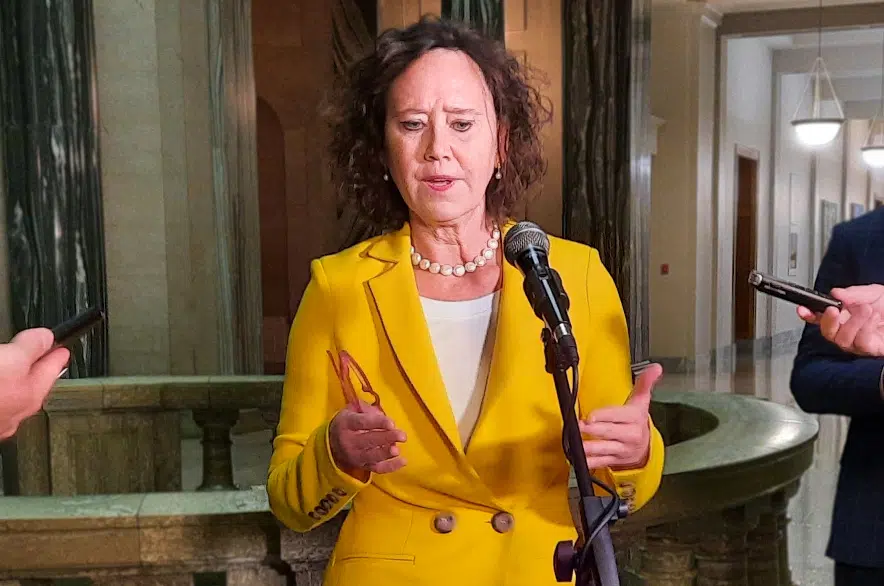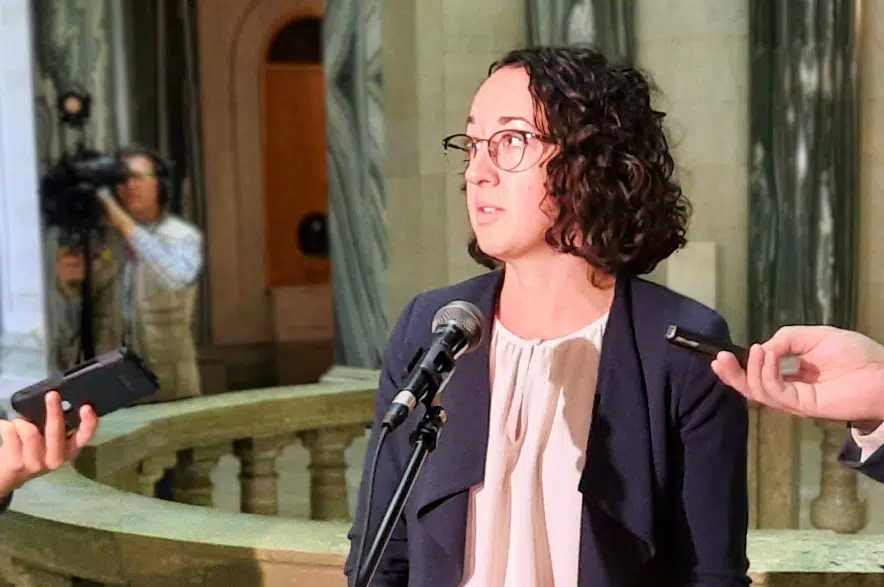While the hours left before the Saskatchewan government’s pronoun legislation could become law dwindled on Thursday, the question of the use of the notwithstanding clause in the legislation came to the fore.
The notwithstanding clause, or Section 33 of the Charter of Rights and Freedoms, allows a government to override some specific rights in the Charter. The provincial government has pre-emptively invoked the clause in its legislation.
Justice Minister Bronwyn Eyre defended the use Thursday.
“It is a legislative tool. It is about the eternal tension between judicial and legislative and it really has also been described, including by (former NDP Premier) Allan Blakeney, as a fundamental democratic tool,” said Eyre.
“It is a tool at our disposal. We’ve always said we would use every tool at our disposal for parental rights (and) we’re doing that.”
READ MORE:
- Pronoun bill opponents decry lack of consultation
- Sask. human rights commissioner resigns over pronoun policy
Eyre argued that legislative sovereignty is at the root of the notwithstanding clause. She said its use was considered carefully and noted the government wouldn’t use it lightly.
When the Charter was first brought in, Quebec enacted a blanket use of the notwithstanding clause for all legislation for eight years. Since then, Quebec has been the most active province in using the clause, including around some pension plan, education and language laws.
In Eyre’s defence of Saskatchewan’s use, she said Quebec has used it hundreds of times, but it’s Saskatchewan now that’s being accused of changing the rules. Eyre couldn’t come up with an instance where the clause was used to override children’s rights.
Use of the clause sunsets after five years and Eyre said that’s there for a reason.
“A government which brings forward policy and uses the notwithstanding clause … that government will also be judged on that policy and we’re willing to be judged on that policy,” Eyre said.
NDP MLA Nicole Sarauer — the opposition party’s house leader and justice critic — didn’t think there had been another instance where the notwithstanding clause had been used to override children’s rights.
“I think that’s egregious and to do it, to override the Charter rights of children, is horrific and it sets a very dangerous precedent,” said Sarauer.
She also accused Eyre of picking and choosing her quotes from Blakeney, saying he was of the view the clause was only to be used in extreme circumstances, after the judicial process reached its conclusion, and in non-controversial issues.
“I don’t think you can get much more controversial than this one that we’re debating today,” said Sarauer.
She also said there’s a rising tide of voices concerned about this government and its actions.
“I think any government worth their salt would hear these concerns and at least put pause on the work that they’re doing ramming through this legislation,” said Sarauer.
The legislation is expected to get through third reading and a final vote Friday morning.












